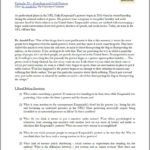
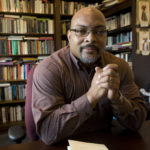




In this 66th episode of the Philosophy Bakes Bread radio show and podcast, Eric Thomas Weber and Anthony Cashio had the pleasure to talk with self-taught philosopher John Altmann (a.k.a. Adrian Alba), who has been engaging in independent philosophical scholarship since 2010. We talk with John about “Disability and Popular Culture.”
John is a regular contributor to the Popular Culture and Philosophy book series. He is a member of the European Network of Japanese Philosophy. He is also a field editor for the Public Philosophy Journal. John is an active public thinker also in his writings on Facebook and Twitter, on the latter of which he is known as @Iron_Intellect. John published a powerful piece in The New York Times, called “I Don’t Want to Be Inspiring,” which was about disability and the ways in which people will often refer to persons with disabilities as being “so inspiring!”
Eric and Anthony both had the chance to meet John at the 2018 gathering of the Public Philosophy Network in Boulder, Colorado this past February, where John gave a powerful paper about the profession of philosophy, called “The Disabled Can Speak: Socratic Midwifery as a Means of Resisting Epistemic Violence.” In addition to that well received paper, John has also written for volumes such as Dracula and Philosophy, The European Journal of Japanese Philosophy, Deadpool and Philosophy, Hippo Reads, and the Blog of the American Philosophical Association, where he wrote about Charlottesville.
Listen for our “You Tell Me!” questions and for some jokes in one of our concluding segments, called “Philosophunnies.” Reach out to us on Facebook @PhilosophyBakesBread and on Twitter @PhilosophyBB; email us at philosophybakesbread@gmail.com; or call and record a voicemail that we play on the show, at 859.257.1849. Philosophy Bakes Bread is a production of the Society of Philosophers in America (SOPHIA). Check us out online at PhilosophyBakesBread.com and check out SOPHIA at PhilosophersInAmerica.com.
(1 hr 8 mins)
Click here for a list of all the episodes of Philosophy Bakes Bread.
We’re on iTunes and Google Play, and we’ve got a regular RSS feed too!
For our future “You Tell Me!” segments, John posed the following question in this episode:
“What does it mean to get representation (of groups/persons) right in a film or television show?”
Let us know what you think! Via Twitter, Facebook, Email, or by commenting here below.
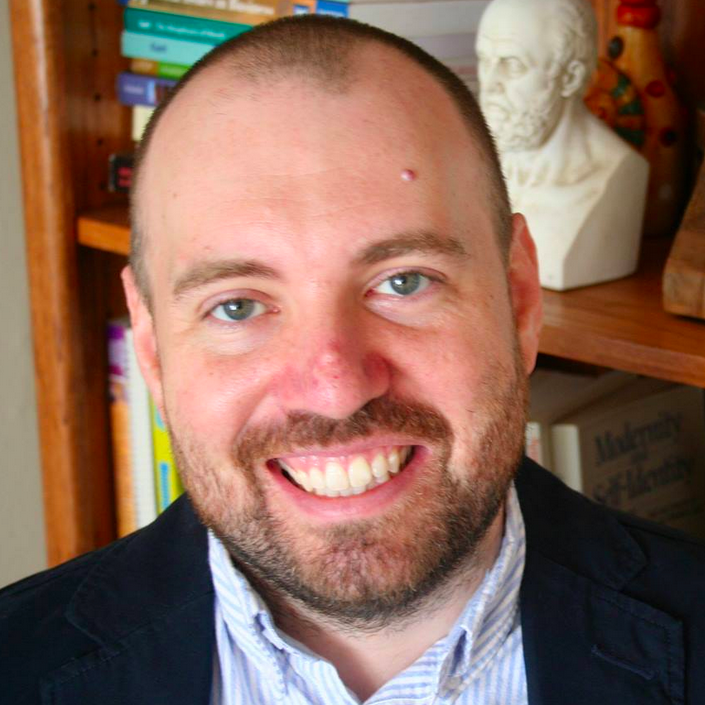
J.J. is an assistant professor in Communications Media at Fitchburg State University. Since 2014, he’s been a HASTAC Scholar and in 2015 he received North Carolina State University’s Award for Excellence in Classroom Teaching. J.J.’s research focuses on understanding the impact of big data, algorithms, and other new media on processes of subjectivation. Using the framework of posthumanism, he explores how the media we use contribute to our construction as subjects.
Listen for our “You Tell Me!” questions and for some jokes in one of our concluding segments, called “Philosophunnies.” Reach out to us on Facebook @PhilosophyBakesBread and on Twitter @PhilosophyBB; email us at philosophybakesbread@gmail.com; or call and record a voicemail that we play on the show, at 859.257.1849. Philosophy Bakes Bread is a production of the Society of Philosophers in America (SOPHIA). Check us out online at PhilosophyBakesBread.com and check out SOPHIA at PhilosophersInAmerica.com.
(1 hr 6 mins)
Click here for a list of all the episodes of Philosophy Bakes Bread.
For our future “You Tell Me!” segments, J. J. posed the following question in this episode:
“How do you think our current media environment is shaping the way that we understand and interact with the world? How might we experiment with those media?”
Let us know what you think! Via Twitter, Facebook, Email, or by commenting here below.
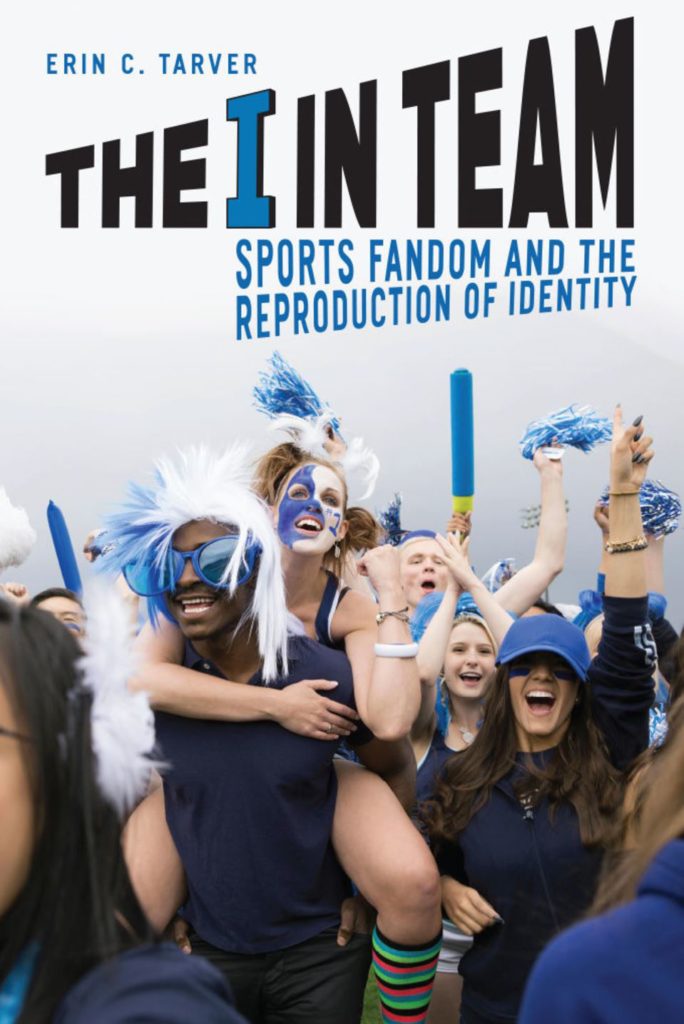
Dr. Tarver is assistant professor of philosophy at Emory University’s Oxford College in Georgia. She is the author of numerous essays and the co-editor of Feminist Interpretations of William James. She teaches courses in logic, ethics, the history of philosophy, and the philosophy of sport.
Listen for our “You Tell Me!” questions and for some jokes in one of our concluding segments, called “Philosophunnies.” Reach out to us on Facebook @PhilosophyBakesBread and on Twitter @PhilosophyBB; email us at philosophybakesbread@gmail.com; or call and record a voicemail that we play on the show, at 859.257.1849. Philosophy Bakes Bread is a production of the Society of Philosophers in America (SOPHIA). Check us out online at PhilosophyBakesBread.com and check out SOPHIA at PhilosophersInAmerica.com.
(1 hr 9 mins)
Click here for a list of all the episodes of Philosophy Bakes Bread.
We’re on iTunes and Google Play, and we’ve got a regular RSS feed too!
For our future “You Tell Me!” segments, Dr. Tarver proposed the following question in this episode, for which we invite your feedback: “Should colleges and universities even be in the business of organizing ‘minor league’ sports teams?”
What do you think?
Let us know! Twitter, Facebook, Email, or by commenting here below.
This sixteenth episode of Philosophy Bakes Bread aired on WRFL Lexington, 88.1 FM, on Monday, April 17th of 2017, and was a special episode on the subject of disability and American philosophy. It was another special episode recorded on location at a conference, except for Eric Weber, who skyped in from a closet in Ohio. This episode features four guests who were all on a panel at the annual gathering of the 2017 Society for the Advancement of American Philosophy in Birmingham, AL.
Our guests included:
Dr. Justin Bell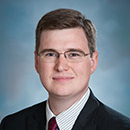

Dr. Nate Jackson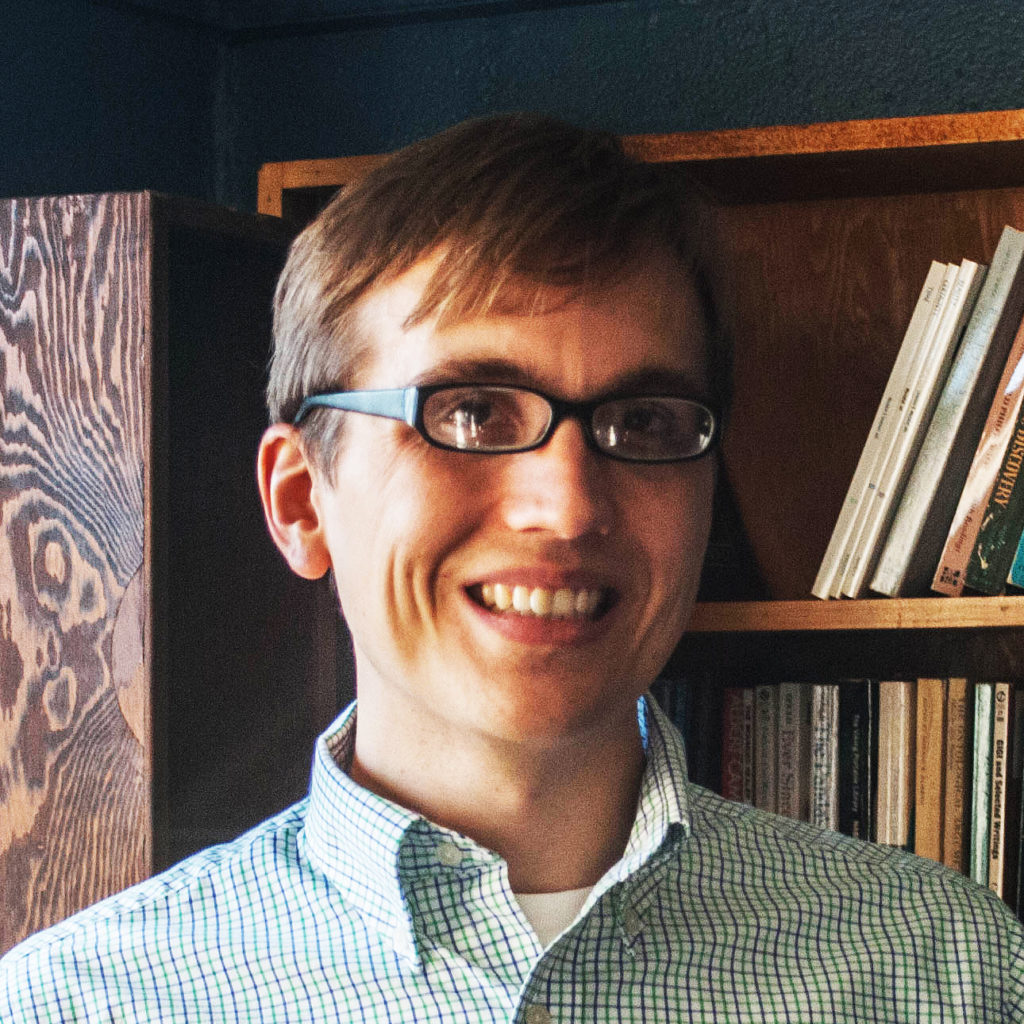
Dr. Sarah Woolwine
Listen for our “You Tell Me!” questions and for some jokes in one of our concluding segments, called “Philosophunnies.” Reach out to us on Facebook @PhilosophyBakesBread and on Twitter @PhilosophyBB; email us at philosophybakesbread@gmail.com; or call and record a voicemail that we play on the show, at 859.257.1849. Philosophy Bakes Bread is a production of the Society of Philosophers in America (SOPHIA). Check us out online at PhilosophyBakesBread.com and check out SOPHIA at PhilosophersInAmerica.com.
(56 mins)
Click here for a list of all the episodes of Philosophy Bakes Bread.
We’re on iTunes and Google Play, and we’ve got a regular RSS feed too!
For our future “You Tell Me!” segments, our guests proposed an excellent question for you, the listener. We’d love to know what you think about it! Here’s the question: “How are you disabled? What does that mean about your vision of the good life?”
What do you think?
Let us know! Twitter, Facebook, Email, or by commenting here below!